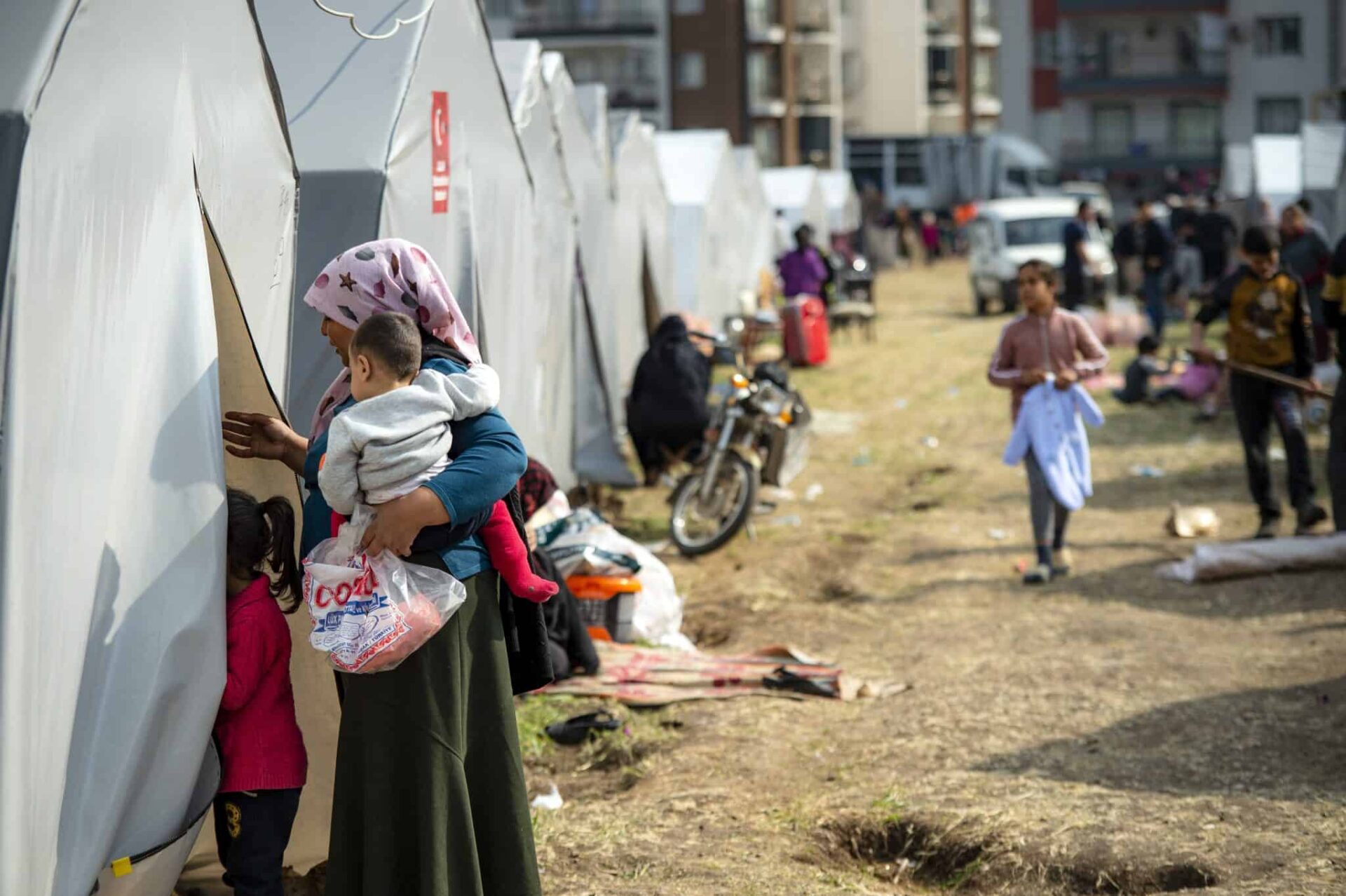
Syria-Türkiye Earthquake Anniversary
InterAction Member Statements
After thirteen years of persistent hostilities, mass displacement, and economic failure, a series of earthquakes hit the Turkish-Syria border, further exacerbating Syria’s existing crisis and creating multigenerational impacts.
The powerful 7.8-magnitude earthquake that struck on February 6, 2023, was swiftly followed by another of similar strength on February 20, 2023. This disaster unleashed one of the most catastrophic humanitarian crises the region has witnessed in recent memory. The earthquakes displaced hundreds of thousands of families, claiming the lives of 5,900 individuals and leaving over 12,800 injured in Syria alone as highlighted by OCHA in the 2024 Humanitarian Needs Overview. In the northwest region of Syria, in particular, the earthquakes struck at a time where the region was already experiencing its highest level of humanitarian needs since the conflict began, with 4.1 million people relying on humanitarian assistance, according to the United Nations. The severe damage inflicted on an already fragile infrastructure exposed displaced populations to vulnerable situations and harsh climate realities.
Humanitarian demands continue to be the highest in Syria since the earthquake occurred, along with severe displacement, high inflation, and conflict that continue to drive humanitarian needs in the country. With billions of dollars in damage, many people remain displaced to date, awaiting solutions and shelter. Despite these challenges, humanitarian organizations did not hesitate to act. According to this joint statement by the U.N. Regional Coordinator and U.N. Resident and Humanitarian Coordinator of Syria, in the first two months of humanitarian response, partners delivered ready-to-eat meals to over one million people and had galvanized nearly one million treatment courses to health facilities. Additionally, over half a million people had improved access to water, sanitation, and hygiene. With increasing poverty and over 16.7 million people reliant on humanitarian aid today, humanitarians emphasize the importance of early and long-term recovery.
Despite humanitarian efforts following the earthquake, the region faces a slow influx of both funding and supplies, hindering progress. With new food aid cuts in January, resulting from an unprecedented budget shortfall, it has deprived one million people of essential assistance. The continuous decrease in food aid and funding is expected to worsen the humanitarian crisis in the coming year, however, humanitarian organizations and Syrian civil society continue to strive to restore and rebuild communities.
Here are InterAction Members’ and Partners’ statements and reports about the anniversary:
- Concern USA Year Reflections
- Save the Children 1 Year Anniversary Impact Report
- Oxfam Year Report on Syria Response
- Mercy Corps Anniversary Statement
- CARE One Year Statement After Syria Earthquake
- ADRA Restoration Statement After One Year
- IRC Syria Earthquake One Year Statement
- Relief International Statement Story
- GOAL USA Anniversary Statement
- Jesuit Refugee Service USA Anniversary Statement
- Humanity & Inclusion Syria Earthquake Anniversary Statement








